Reading time: 10 minutes
Non-alcoholic wine is been popping up in bars, restaurants, bottle shops and more because the interest in this space is higher than ever before. In recent years there has been a significant amount of growth in people looking for quality alternatives to alcoholic drinks. Non-alcoholic wine is right at the top of that list of alternatives along with non-alcoholic beer, non-alcoholic apéritifs (our guide here) and spirits (discover our guide here). What for? People are now adapting their lifestyles to match their goals for mental well-being & physical health. This means being more thoughtful when going out for dinner, hosting friends and family or attending a wedding or other event. People want options and not only alcoholic beverages, they’re sober and curious, that means, they might want to moderate for the night or they’re putting off alcohol for an extended period of time (read why here). Either way, they still want to be able to enjoy a good drink, that’s why a tasty glass of NA wine is a hot topic nowadays.
Maybe you are already convinced by non-alcoholic wine and want to find the best one or you are interested in trying but don’t know where to start. This article will guide you through the best non-alcoholic wines of 2025 and will answer all your questions about it.
Let’s dive into the summary:
Table of Contents
- What is a non-alcoholic wine?
- What is the difference between non-alcoholic wine and alcoholic-free wine?
- What is the point of non-Alcoholic wine?
- What Makes a Good Non-Alcoholic Wine?
- Does Non-Alcoholic Wine Taste Like Real Wine?
- Is Non-Alcoholic Wine Fattening?
- Which Brands of Non-Alcoholic Wine are Worth Buying?
- The Best Non-Alcoholic Wines in 2025
- How Non-Alcoholic Wine Can be Paired with Food?
- Can I drink non-alcoholic wine if I am pregnant, taking medication, driving or sober?
What is a non-alcoholic wine?
Non-alcoholic wine is a wine that has had its alcohol content removed or reduced to less than 0.5% ABV (Alcohol By Volume). They can also be labeled as “dealcoholised” or “alcohol-removed” wine. The process of removing the alcohol is done through a variety of methods including vacuum distillation, reverse osmosis, evaporation, and other techniques. No fermentation process, no fermented grapes, no alcohol. The result is a wine that has a similar taste and aroma to regular wine, but with no alcohol or very trace amounts. With the innovation and development in non-alcoholic wine-making techniques, the quality of wine has improved and is now one of the most popular drinks without alcohol.

What is the difference between non-alcoholic wine and alcoholic-free wine?
Another frequently asked question we hear is: “Is There Really No Alcohol in Non-Alcoholic Wine?”
As previously mentioned non-alcoholic wine contains less than 0.5% ABV. That number, 0.5, is important because anything above that amount cannot be considered non-alcoholic. So, is alcohol-free just another name tag? Nope, when a product contains “alcohol-free” on its label that means the wine contains less than 0.05% ABV. This is the lowest that you will be able to find when looking for products without the alcohol. It’s extremely difficult for a wine to contain literally zero alcohol because small traces of alcohol are in just about everything. We consume food and drink items that contain traces of alcohol every day including fruit & fruit juices, bread, yogurt, vinegar, energy drinks and the list goes on. Can you get intoxicated from these products or non-alcoholic wine? Not likely, you would need to consume A LOT of bottles of non-alcoholic wine in a very short period of time to feel any kind of effects, it’s pretty much virtually impossible to get drunk or get a booze from non-alcoholic products.

What is the point of non-Alcoholic wine?
When we first started our online non-alcoholic bottle shop, No & Low, this was the most asked question, so we dedicated a full article to the subject. But to get to the overall point of non-alcoholic wine, it’s to enjoy the taste and experience of drinking wine without the many negative effects of alcohol. Beyond that there are endless “points” or reasons to drink NA wines, this can range from health reasons to personal goals to religion to be the designated driver. But at the end of the day the reason doesn’t matter, no one should have to justify their reason for drinking non-alcoholic options just like they don’t have to explain why they drink or eat anything else. Everyone deserves an option they enjoy, maybe it’s a full strength cocktail or maybe it’s a non-alcoholic wine.
Simply put non-alcoholic wines or drinks are not just for sober individuals, pregnant women, or someone participating in Dry January. It’s for anyone looking to reduce alcohol consumption, have better health benefits, enjoy the ritual of sharing a drink, socializing, relaxing after a hard day’s work or improving their lifestyle.
What Makes a Good Non-Alcoholic Wine?
Since “good” non-alcoholic wine will vary depending on your personal taste preferences we’ve outlined a few important factors to consider.
- Source: Where does the wine come from? Does it specify the region and grape variety used? Was it actually made from wine or is it made of different ingredients? This takes us to our next point.
- Ingredient list: The main ingredient should be the type of wine that was dealcoholised. It’s normal to see sulfites on the ingredients list since that helps preserve the beverage. Lastly, you want to avoid too many additives. Low amounts of added sugar are common and used to balance a wine’s profile.
- Taste & smell: If it resembles the aromas and taste profile of wines that fit your palate then you’ve found a winner! For you that might mean fruity, on the sweeter side or your style could lean towards dry wines with high acidity and earthy tones. It’s all about finding what suits you.
With that being said there are fantastic wine alternatives or “proxies” that do not use dealcoholised wine but instead use a variety of ingredients and methods to make a unique liquid that is well-suited to the wine occasion. Brands doing this very well include Empress and Three Spirit’s Blurred Vines.
To help you choose the right non-alcoholic wine, we made a little selection at the bottom of this article highlighting our favorites.
Does Non-Alcoholic Wine Taste Like Real Wine?
The major component of traditional wine is the alcohol, the process of removing the alcohol from wine makes a fundamental change to the original product. If you are a seasoned wine drinker, it’s difficult not to taste the differences in a non-alcoholic wine, sometimes they may be subtle and other times drastic. Certain wine styles such as sparkling wines and still white wine or rosé wine has proven to be more successful at emulating the real thing. Red wine like Pinot, Pinot-noir has always been the most difficult NA wine to conquer but with more focus and innovation within the space, we see delicious options emerge such as the Lautus Savvy Red. 
Here are also specific wine regions that have become well-known for producing top-notch non-alcoholic wines like Spain, Germany, South Africa and Australia. So can you find a non-alcoholic wine that tastes like the real thing? Yes, but keep in mind that not all are made the same and some could miss the mark for you, it’s best to keep an open mind and search for something that satisfies your needs. Our favorite products do an incredible job capturing the aromas, flavors, appearances & overall essence of their alcoholic counterparts. They are made using the same grape varieties and winemaking methods as regular wine, resulting in a similar taste and aroma. If you’re not familiar with our story at No & Low, we come from a wine-making family ourselves and worked very hard to create our own range of non-alcoholic wines and would highly recommend you to try our first and very own non-alcoholic Sparkling Chardonnay from the vineyards La Mancha region in Spain. We would appreciate your feedback afterward as well ;)
Is Non-Alcoholic Wine Fattening?
Non-alcoholic wine is healthier than alcoholic wine in just about every aspect. Of course, removing the alcohol removes the harmful effects alcohol can have on your physical and mental health. Beyond that non-alcoholic wine is typically lower in sugar and calories as well. For comparison, the image below highlights the nutritional benefits of choosing our selected non-alcoholic wines.

But do note, however, that if you make it into a Cocktail as a Sangria or a Spritz, the resulting concoction might be fattening regarding what you will mix it with.
Note: No & Low finds it important to remember that consuming too much of any type of food or drink can lead to weight gain. We advise to drink it with moderation.
Which Brands of Non-Alcoholic Wine are Worth Buying?
In recent years, many great (and not so great) brands of non-alcoholic wine have emerged. At No & Low, we take pride in selecting the non-alcoholic wines on the market, ensuring there is something for everyone’s taste. We’re so committed we’ve even started producing our very own non-alcoholic wines. Our favorites brands are:
- No & Low
- Lautus
- Lyre’s (Classico)
-
Empress and Three Spirit Blurred Vines for delicious non-alcoholic wine alternatives.
These brands have made a name for themselves in the non-alcoholic space and are known for providing high-quality wines and for sourcing their grapes from renowned wine regions around the world that perform best in non-alcoholic wines such as Spain, Germany and South Africa.
The Best Non-Alcoholic Wines in 2025
These non-alcoholic wines have been carefully selected based on their taste, aroma, and overall quality. Whether you are looking for a non-alcoholic red, white, rosé or sparkling wine, you are sure to find a non-alcoholic wine that meets your needs and tastes. You can check out our curated selection here and if you’re looking to try more than a few you can save on our non-alcoholic wine bundles.

Non-alcoholic red wine: No & Low Cabernet Sauvignon and Lautus Savvy Red

Non-alcoholic white wine: No & Low Chardonnay and Lautus Sauvignon Blanc.

Non-alcoholic sparkling wine: No & Low Sparkling Chardonnay and Lautus Sparkling Brut


Ready to drink: Lyre’s Classico and the entire Lautus range of ready to drink wines, including their Rosé, Sauvignon Blanc, and Savvy Red.
How Non-Alcoholic Wine Can be Paired with Food?
Like classic wine, non-alcoholic wine can be paired with a wide variety of foods and cuisines, including meats, cheeses, and more. When choosing a non-alcoholic wine to pair with food, it is important to consider the style, flavors and sugar content of both the wine and the food. Try out a few of the following pairings and that we fancy most.
- No & Low Sparkling Chardonnay with seafood, think white fish, oysters, lobster and other shellfish. Deep-fried chicken, french fries and even potato chips. Olives, hard cheeses, roasted asparagus and spicy hot curry.
- Lautus Savvy Red with your favorite tomato-based Italian pasta. Braised chicken & veggies, spicy Korean chicken stew, goat cheese, and dark chocolate.
Can I drink non-alcoholic wine if I am pregnant, taking medication, driving or sober?
-
Pregnant or nursing: This can make many feel uncomfortable because non-alcoholic wines still contain trace amounts of alcohol. The same amounts you would find in orange juice, vanilla extract, bread, or even a ripe banana. While we consider a glass of non-alcoholic wine safe during pregnancy and nursing, we recommend you consult with your doctor and decide together if you feel comfortable with this decision.
-
Taking medication: As with pregnancy, we consider drinking non-alcoholic wines while on medication to be safe. This, of course, can change depending on your particular health situation and we again recommend consulting your doctor if you are unsure if you should be drinking even a trace amount of alcohol.
-
Driving: Yes, you can drive when drinking non-alcoholic wine. These wines will not affect your motor skills or impair your judgment and they won’t be detectable because it is such an insignificant amount of alcohol. Just make sure your drinking wines are labeled “non-alcoholic” or “alcohol-free.”
- Sobriety: Everyone approaches sobriety their own way, this can mean using non-alcoholic wine, beers and liquor daily or avoiding it altogether because it may trigger you into wanting the real thing. This is a deeply personal decision and we understand how sensitive of a topic this can be for those in recovery and with a history of alcohol abuse in their family. If you’re unsure if these products are right for you, we suggest discussing this decision with close family, friends, your doctor and therapist, or anyone else who may be educated on this topic and situation. Email us directly at hi@drinknolow.com if you have any questions or concerns. You can also check our FAQ page.
Conclusion
In conclusion, non-alcoholic wine is great alternative for those looking to replace their daily glass of wine without sacrificing on the taste and experience. It also comes without the negative effects of alcohol. Whether you are looking for the best non-alcoholic wine, non-alcoholic red wine, or non-alcoholic champagne, there are many options available in 2025 to meet your needs and tastes.
About us
Say goodbye to bland and boring non-alcoholic drinks and hello to Louis & Massimo's range of sophisticated and flavorful non-alcoholic wine and spirits. Indulge in the taste of your favorite drinks, minus the alcohol. Raise a glass to a new way of celebrating, where every sip is just as enjoyable as the last. Discover more about our business through this Food and Wine article.
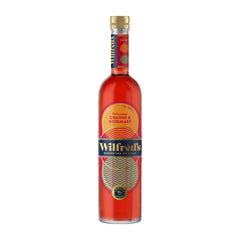
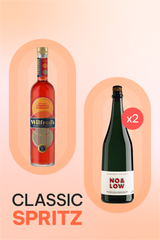
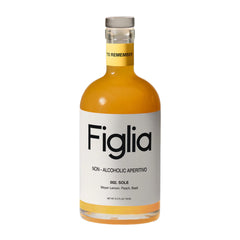
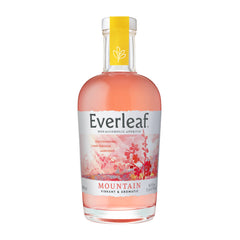
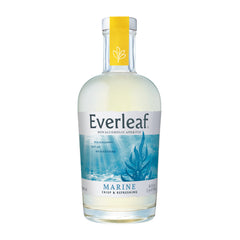
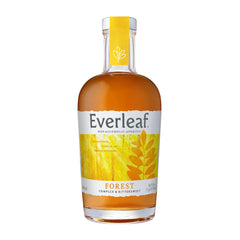
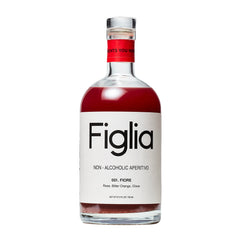
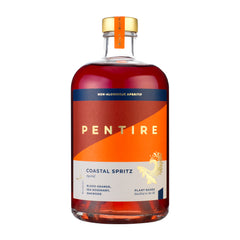
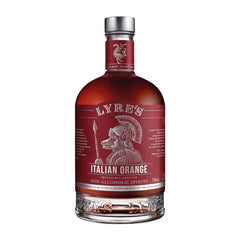




Very interesting.
But you said nothing about using these non-wines in cooking. I like to use wine in many different dishes. Will it work with alcohol-depleted wine?